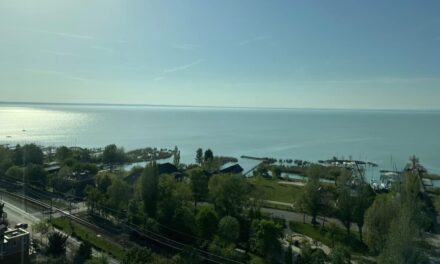According to the compilation of Handelsblatt, the largest German daily newspaper, in terms of economic development and purchasing power parity, Hungary was ahead of Greece, Portugal, and from the region, Bulgaria, Romania, Croatia, Latvia, and Slovakia.
Hungary's GDP calculated at purchasing power parity reached 76 percent of the EU average last year, according to the Handelsblatt article. Based on the description of the German economic daily, our country surpassed Portugal and Greece, which have been members of the EU since 1986, and which have been classified in the "developed West" category for decades.
Specifically, according to Handelsblatt's summary, the EU member states stand in terms of development, based on percentage distribution: Bulgaria 55, Greece 65, Slovakia 68, Croatia 70, Latvia 71, Romania 73, Portugal 74, Hungary 76. The overall picture also includes the fact that the past in more than a decade, the field around us was fundamentally reorganized: Poland moved from 22nd to 19th, Lithuania from 24th to 16th, while Portugal from 18th to 21st, Greece Slovakia slipped from 15th to 26th, and from 19th to 25th. The competition between Hungary and Poland is particularly close, the difference is one percent.
IF WE LOOK AT THE ANALYSIS IN MORE DETAIL, IT ALSO APPEARS THAT: AMONG THE VISEGRAD COUNTRIES, HUNGARY ACHIEVED THE GREATEST DEVELOPMENT, BECAUSE WHILE POLAND'S IMPROVEMENT WAS ONE PERCENTAGE POINT, CZECH REPUBLIC WAS ONE, AND SLOVAKIA WAS ALSO TWO PERCENTAGE POINTS.
With the result in question, our country was in 20th place among the member states. To reach the next level, Spain, a bigger jump will be needed: the Mediterranean country stands at 84 percent.
It is a big question whether our country will continue to catch up in the current period burdened by war. In theory, it can continue, after the economic shock caused by the coronavirus did not divert Hungary from its developing path. An economic growth of 5-6 percent can be achieved this year, and development can be helped by an average double-digit increase in wages. Although inflation is not low, compared to several other countries, the real income situation may improve slightly due to wage dynamics. The base is more than good: while the EU's GDP grew by 5.2 percent in the first quarter of this year, Hungary's 8 percent expansion is the fourth largest figure among the data, followed by Portugal's 11.9, Poland's 9.1 and Austria's 8.7 percent better than him.
At the same time, in the longer term, two factors are necessary to continue catching up: to increase the share of domestic ownership, and – perhaps even more importantly – to switch to higher value-added activities, for which the development of education is also essential.
Source: Origo
Image: Hungarian Nation












